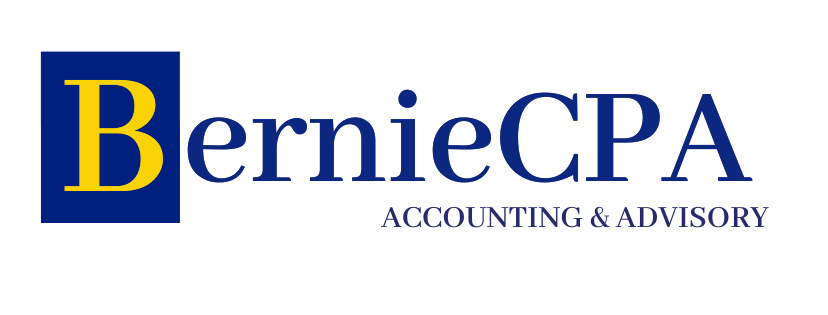Sole Proprietorship vs LLC: Which Business Structure is Right for You?
A sole proprietorship is a type of business structure that is owned and operated by a single individual. This means that the owner has complete control over the business and is personally responsible for all of its debts and liabilities. In a sole proprietorship, the owner and the business are considered to be one and the same, which means that the owner’s personal assets are at risk if the business runs into financial trouble.
One of the key advantages of a sole proprietorship is its simplicity. It is easy to set up and requires minimal paperwork and formalities. Additionally, the owner has complete control over the business and can make decisions without having to consult with anyone else. However, there are also some disadvantages to this business structure. For example, the owner is personally liable for all of the business’s debts and liabilities, which means that their personal assets are at risk. Additionally, it can be difficult to raise capital for a sole proprietorship, as banks and investors may be hesitant to lend money to a business that is owned by a single individual.
Understanding Limited Liability Company (LLC)
A Limited Liability Company (LLC) is a type of business structure that combines the flexibility and simplicity of a sole proprietorship with the limited liability protection of a corporation. This means that the owners of an LLC are not personally liable for the company’s debts and liabilities, which helps to protect their personal assets. Additionally, an LLC can choose to be taxed as a partnership, which allows for pass-through taxation, meaning that the company’s profits and losses are passed through to the owners’ personal tax returns.
One of the key advantages of an LLC is its limited liability protection. This means that the owners’ personal assets are generally protected from the company’s debts and liabilities. Additionally, an LLC offers flexibility in terms of management and ownership structure, allowing for a variety of different arrangements to suit the needs of the owners. However, there are also some disadvantages to this business structure. For example, setting up an LLC can be more complex and expensive than setting up a sole proprietorship. Additionally, an LLC may be subject to more regulations and formalities than a sole proprietorship.
Legal and Financial Implications of Sole Proprietorship
From a legal perspective, a sole proprietorship is relatively simple and straightforward. The owner has complete control over the business and is not required to file any formal paperwork to set it up. However, because the owner and the business are considered to be one and the same, the owner is personally liable for all of the business’s debts and liabilities. This means that if the business runs into financial trouble, the owner’s personal assets are at risk.
From a financial perspective, a sole proprietorship can be challenging when it comes to raising capital. Because the owner is personally liable for the business’s debts, banks and investors may be hesitant to lend money to a sole proprietorship. Additionally, the owner may have difficulty attracting top talent or expanding the business due to limited resources.
Legal and Financial Implications of LLC
From a legal perspective, an LLC offers limited liability protection for its owners, which means that their personal assets are generally protected from the company’s debts and liabilities. Additionally, an LLC can choose to be taxed as a partnership, which allows for pass-through taxation, meaning that the company’s profits and losses are passed through to the owners’ personal tax returns. However, setting up an LLC can be more complex and expensive than setting up a sole proprietorship, as it requires filing formal paperwork with the state.
From a financial perspective, an LLC offers more flexibility when it comes to raising capital. Because the owners are not personally liable for the company’s debts, banks and investors may be more willing to lend money to an LLAdditionally, an LLC may have an easier time attracting top talent or expanding the business due to its limited liability protection.
Pros and Cons of Sole Proprietorship
One of the key advantages of a sole proprietorship is its simplicity. It is easy to set up and requires minimal paperwork and formalities. Additionally, the owner has complete control over the business and can make decisions without having to consult with anyone else. However, there are also some disadvantages to this business structure. For example, the owner is personally liable for all of the business’s debts and liabilities, which means that their personal assets are at risk. Additionally, it can be difficult to raise capital for a sole proprietorship, as banks and investors may be hesitant to lend money to a business that is owned by a single individual.
Pros and Cons of LLC
One of the key advantages of an LLC is its limited liability protection. This means that the owners’ personal assets are generally protected from the company’s debts and liabilities. Additionally, an LLC offers flexibility in terms of management and ownership structure, allowing for a variety of different arrangements to suit the needs of the owners. However, there are also some disadvantages to this business structure. For example, setting up an LLC can be more complex and expensive than setting up a sole proprietorship. Additionally, an LLC may be subject to more regulations and formalities than a sole proprietorship.
Choosing the Right Business Structure for Your Needs
When it comes to choosing the right business structure for your needs, it is important to carefully consider the legal and financial implications of each option. A sole proprietorship offers simplicity and complete control over the business, but comes with personal liability for all debts and liabilities. An LLC offers limited liability protection and flexibility in management and ownership structure, but can be more complex and expensive to set up.
Ultimately, the right choice will depend on your specific circumstances and goals for your business. If you are looking for simplicity and complete control over your business, a sole proprietorship may be the best option for you. However, if you are concerned about protecting your personal assets from business debts and liabilities, an LLC may be a better choice. It is important to carefully weigh the pros and cons of each option before making a decision, and it may be helpful to consult with a legal or financial professional for guidance. By carefully considering your options and seeking professional advice when needed, you can choose the right business structure for your needs and set yourself up for success in your entrepreneurial endeavors.


